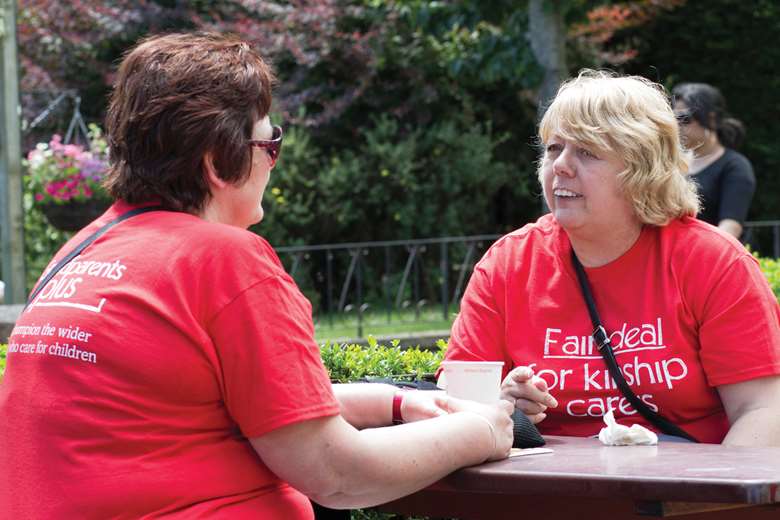Support network for kinship carers boosts ability to cope
Emily Rogers
Monday, September 1, 2014
Project reduces isolation of kinship carers and improves their wellbeing and ability to cope.

Project
Relative Experience
Funding
£196,500 from the Big Lottery Fund's Silver Dreams fund from September 2012 until February 2014
Background
Kinship carers - grandparents or other relatives who have taken on the care of a child - are a group that charity Grandparents Plus describes as overlooked and unsupported. Ninety-five per cent of children in kinship care arrangements do not have official "looked-after" status, despite experiencing similar issues to their peers in the care system such as parents' drug and alcohol abuse, domestic violence and family breakdown. This means carers are not entitled to the support, training and financial allowances available for foster carers and are often isolated, having given up their jobs and lost friendship networks after taking on the role. "They have to fight their corner very hard to get any kind of help, and support is incredibly uneven," says charity chief executive Sam Smethers.
Grandparents Plus already ran a support network for kinship carers, but wanted to do more. Fellow family support charity Family Lives had developed a peer befriending project to support struggling parents and this looked like it could be adapted for kinship carers. So Grandparents Plus teamed up with Family Lives and the Family and Childcare Trust to apply for funding.
Action
The project was trialled in the North East, as the region had high numbers of kinship carers with active support groups in place, as well as a Family Lives office. The charities focused on Newcastle, Gateshead and Sunderland, a concentrated metropolitan area where people could easily get together.
Referrals of kinship carers came from schools and children's services. And volunteer befrienders were recruited through networks of voluntary organisations.
Volunteers were expected to be over 50 and have relevant life experience, such as grandparenting or professional expertise. The majority turned out to be kinship carers themselves. After initial interviews and home visits, they were given four or five days of training by Family Lives staff, covering wellbeing, safeguarding, child safety, an introduction to kinship care and boundaries in their befriending role.
The 19 kinship carers were recruited by Grandparents Plus. The charities came together to pool their knowledge to match carers with volunteers. Each carer received five to 10 befriending sessions over six to nine months, delivered by 11 volunteers. Their brief was to listen to carers and help them find their own solutions to the issues they faced, as well as helping to signpost them to services that could offer more support.
The carers brought some difficult and painful experiences to the sessions. Fifty five per cent had taken on children as a result of their parents' drug and alcohol addiction, 18 per cent had done so due to the risk of abuse or violence and 18 per cent due to the risk of neglect. These circumstances sometimes led to challenging behavioural issues in children, such as anger and repetition of their parents' behaviour. "Kinship carers are people who really have the odds stacked against them," says Smethers. "This project is about addressing their isolation, giving them the information they need to signpost them to support and giving them confidence, strength and emotional wellbeing so they can fight for improvements to their own lives."
Outcome
The 19 kinship carers were assessed before and after their befriending sessions through the Warwick-Edinburgh Mental Wellbeing Scale, which scores people on a 10-point scale for different aspects of mental wellbeing. After the intervention, 17 out of 19 reported an improvement in the personal or family concern they had brought to the sessions, with a 23 per cent average improvement in their score.
The evaluation by Coram also shows three-quarters recorded an improvement in their overall life satisfaction after the befriending, with a 12 per cent average increase in their score. Two-thirds reported an improvement in their ability to think clearly.
The project was granted a further three years of Big Lottery funding in March, enabling it to expand to Middlesbrough, Teeside and Durham.
IMPROVEMENT IN WELLBEING
Findings from the North East pilot involving 19 kinship carers
90% of carers saw an improvement in a personal or family concern
75% of carers recorded an improvement in overall life satisfaction
Source: Grandparents Plus
If you think your project is worthy of inclusion, email supporting data to derren.hayes@markallengroup.com




